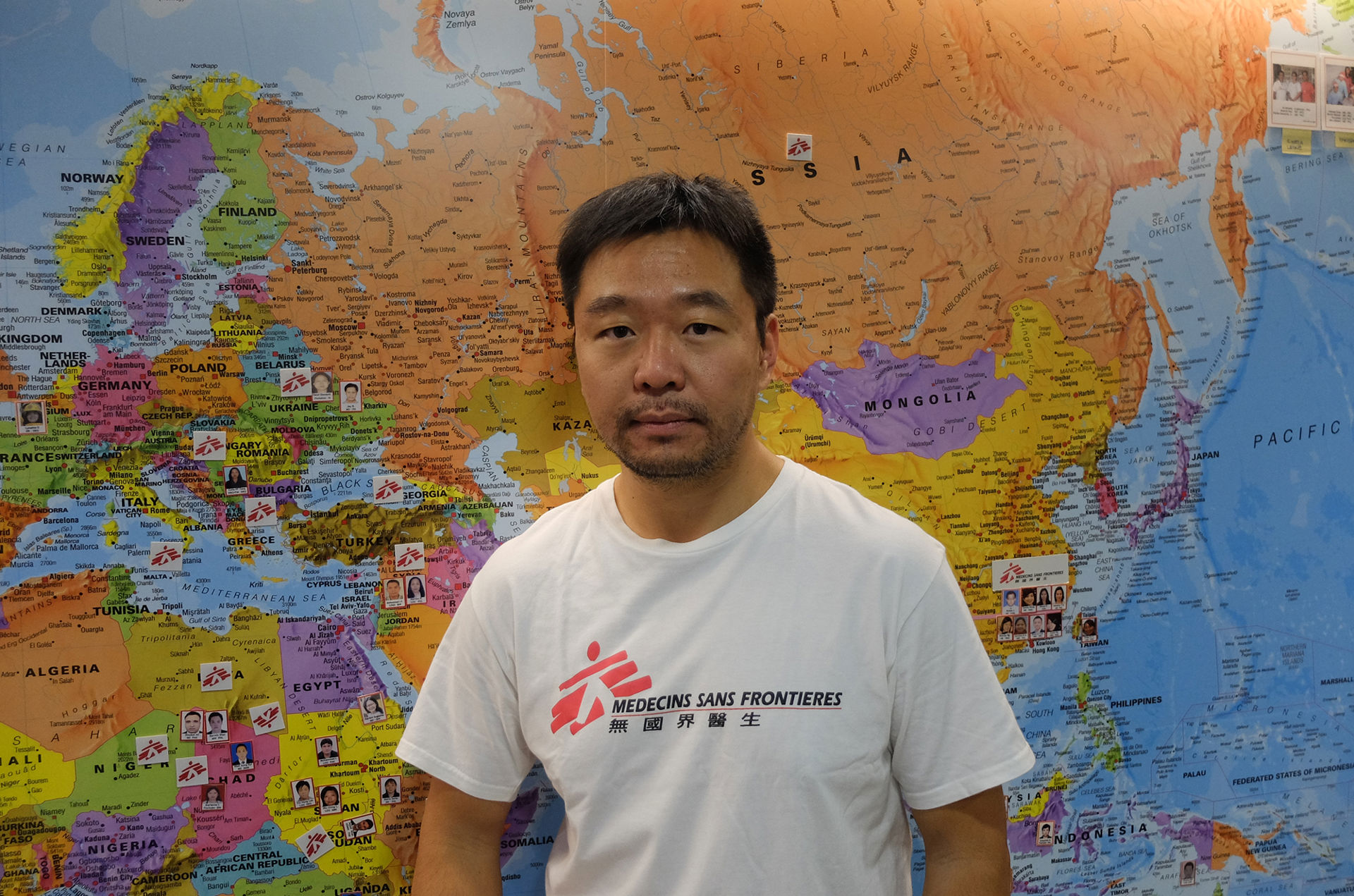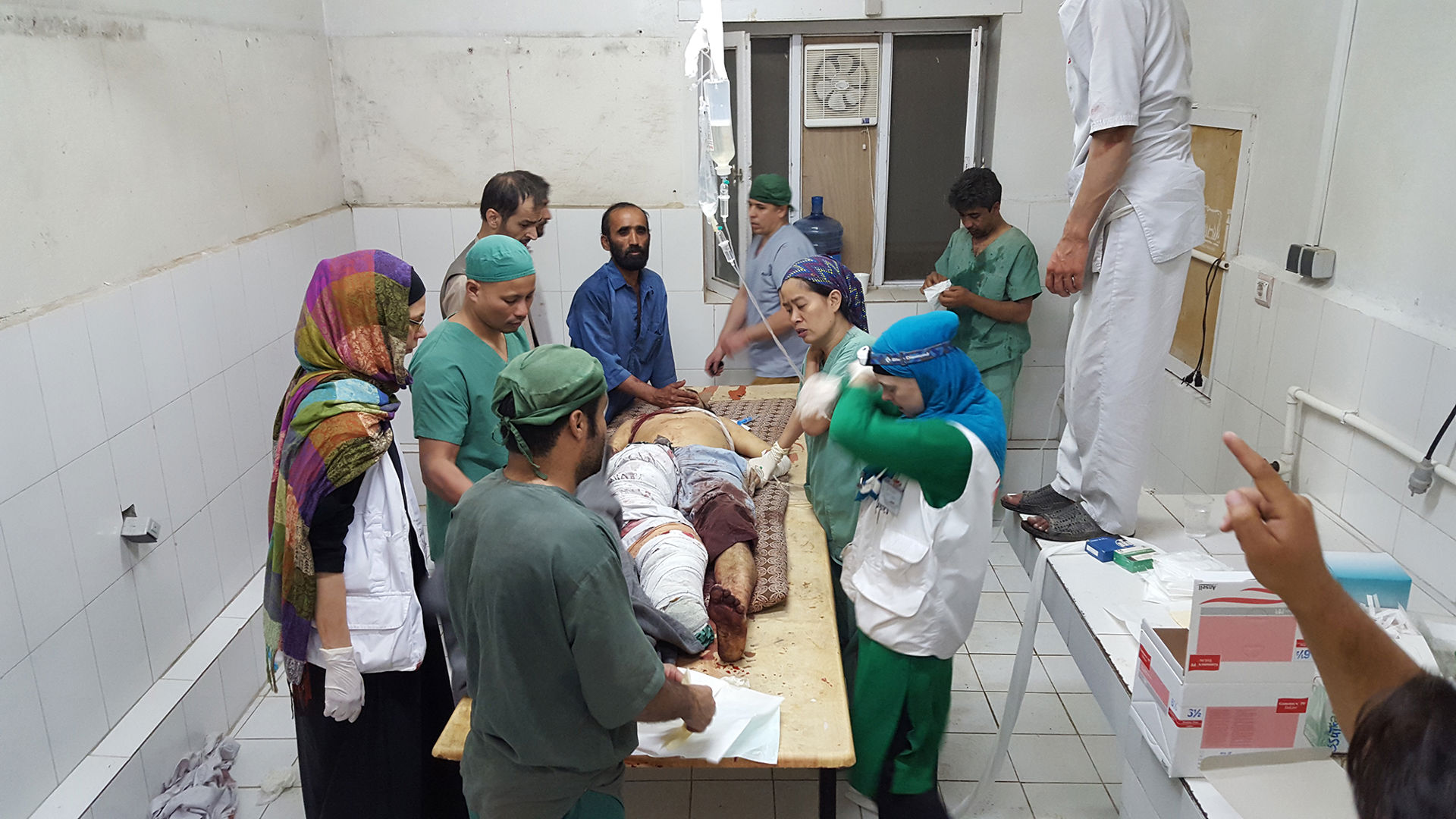Saada is an area controlled by anti-government Houthi forces that was experiencing almost daily attacks from Coalition air forces. These air strikes were often close to our facilities and we clearly felt their effects. No matter day or night, I heard the sound of the planes, explosions and airstrikes. I once saw the dust and smoke coming out from a building nearby after it had been bombed. It was stressful hearing and seeing the bombs fall nearby, but you needed to stay focused and just do your work.
As nurse activity manager, an important part of my job was managing the emergency room. During my 7 weeks of service, our hospital handled at least 4 mass-casualty incidents – one of them with 41 injured flooding within a six hour period. I needed to act fast to triage patients according to injury severity and the hospital’s response capacity to make sure the most severe cases were attended to immediately, avoid overwhelming the team and to make the best out of limited medical resources.
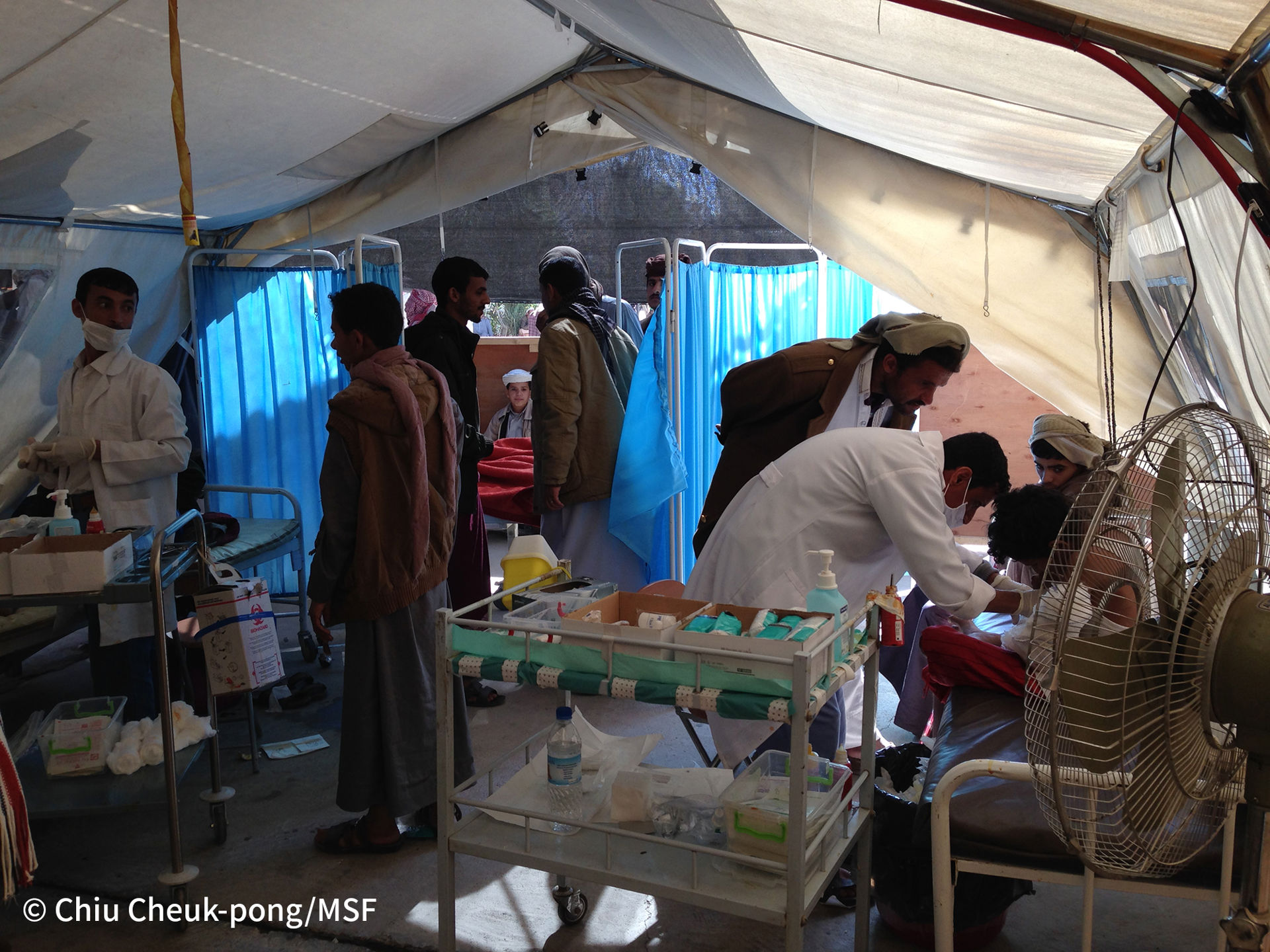 The dressing tent of the hospital.
The dressing tent of the hospital.
The worst day was on Winter Solstice. We received 7 severely injured patients after an airstrike, including a 50-ish man whose head was heavily hit by shrapnel. There was a deep laceration on his skull. Our team managed to stabilise him, but we did not have neurosurgical instruments to treat him. We all knew he needed immediate referral, but unfortunately we could not find a safe way to do so. We sent him to the intensive care unit but were not optimistic about his chances of survival.
While we were busy working in the emergency room, a man came in and left a blanket and a bag in the room. I unwrapped the blanket and found that there was the body of a little girl. Her face was covered with dark soot and a large part of the right side of her head was missing. Other nurses told me that inside the bag were pieces of bodies. I was horrified by the brutality of this conflict. It was a war against civilians.
One patient whose story particularly stuck in my mind was a four-year-old boy who came in to the hospital for dressing every other day with his grandfather. All his other family members had died in an airstrike. His right forearm had been severely injured in the same incident and had been amputated.
To cheer him up, our medical staff would draw a watch on the bandage every time after dressing. When I saw his innocent smile my heart ached – he may not even realize that he can never wear a watch on his right hand.
Could his grandfather take good care of him? Will he be able to adapt and earn a living one day? I worried about his future, as well as the future of all the ordinary citizens who have been dragged into this ruthless conflict.
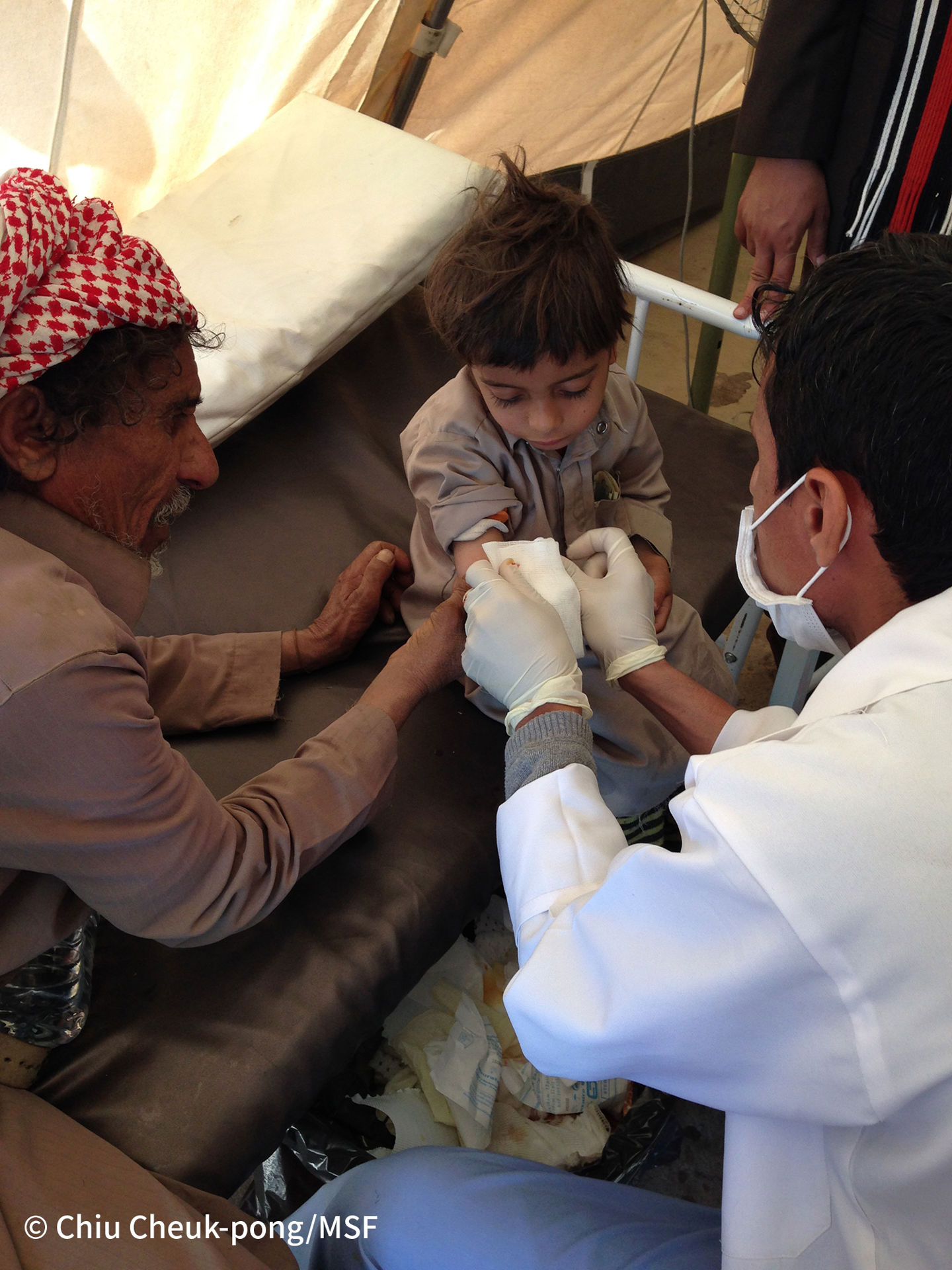
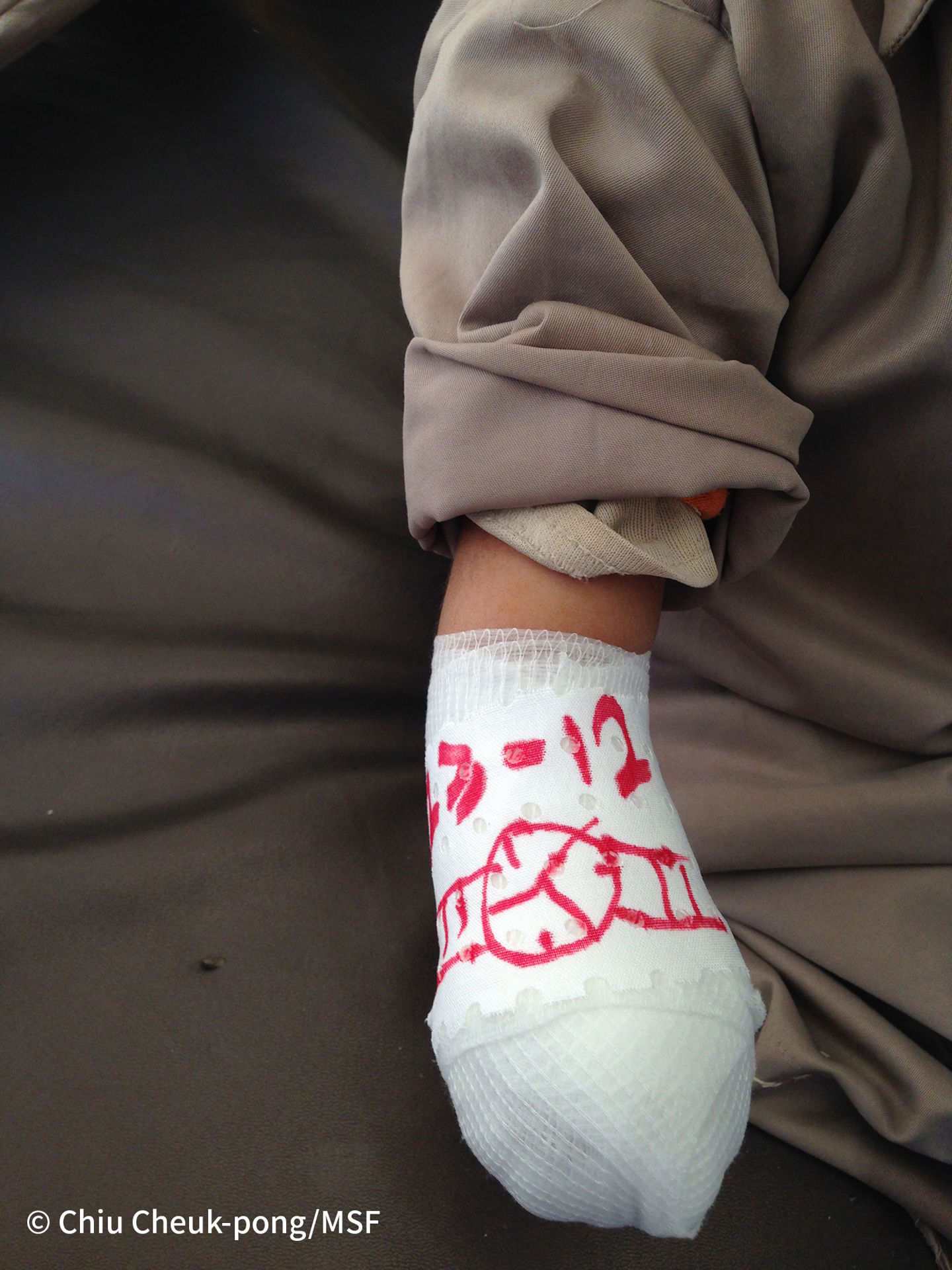 The little boy had an amputated right forearm. Whenever he came to the hospital to change the dressing, the medical staff would draw a watch on the bandage to cheer him up. However, this little boy will never be able to wear a watch on his right hand.
The little boy had an amputated right forearm. Whenever he came to the hospital to change the dressing, the medical staff would draw a watch on the bandage to cheer him up. However, this little boy will never be able to wear a watch on his right hand.


